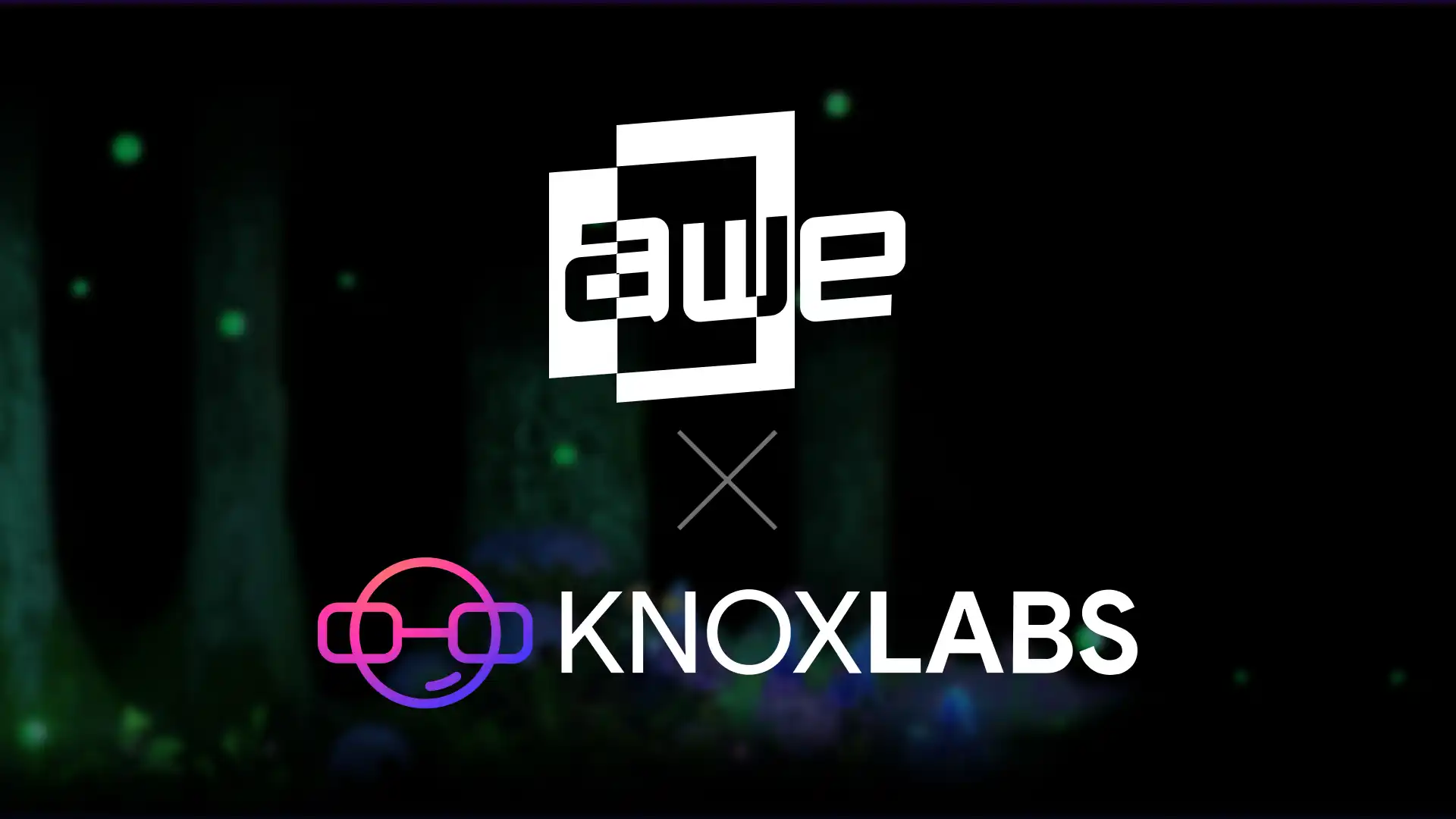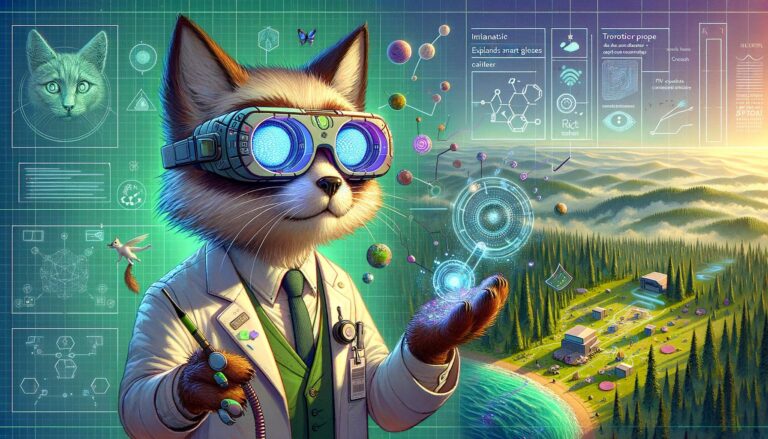AWE 2024 was extra spatial with technology that was interplanetary. We can safely say that XR has arrived!
The general themes this year centered around the latest and greatest in headset technology, with many of the exhibitors utilizing Meta Quest 3, Varjo, Magic Leap and more that boast impressive passthrough capabilities for Augmented Reality experiences. We saw lifelike haptics, VR treadmills, innovative new devices, and of course multiple panels discussed the capabilities and possibilities of AI.
As the hardware technology that was ahead of its time begins to merge into the market ecosystem, XR is being adopted widely for commercial and enterprise use. The final form is an added layer of reality, not meant to replace the existing stack, but instead augmenting it.
The use cases we saw at AWE are incredibly practical for daily business use, such as training, simulation, healthcare, and more. It was a nice feeling to see these virtual worlds and devices stand on their own two physical feet!
We checked out so many incredible devices on the Expo floor, many of which we have available for purchase on our Knoxlabs XR Launchpad. Let’s take a closer look at some of our favorite devices from this year, and what makes them so exceptional!
1) Spatial Reality Display | Sony and Singular Health Group Ltd
Sony’s latest Spatial Reality Display invites people to discover a new visual medium with their glasses-free 3D display. These incredibly realistic spatial images on a rich LCD display are visible even without the use of glasses or VR headsets! This is made possible by using a lens to divide the image between the left and right eyes, giving a stereoscopic view with just the naked eye.
This type of 3D viewing is unique to the Spatial Reality Display and it feels as if the objects are right in front of you, and even while moving they look just as smooth as in real life. This is made possible by leveraging Sony’s original algorithm for processing real-time content for each eye without lag. This proprietary high-speed sensor follows eye movement down to the millisecond, sensing pupil position through space on all three axes: vertical, horizontal, and depth.
One exciting use case is using this cutting-edge 3D visualization technology for Medical Imaging. The 3D graphics can be rotated, enlarged, and cut by any plane, all in real-time, offering an unparalleled experience in medical image review, analysis, and collaboration.
Spatial Reality Display also has a Developer Site which provides dedicated tools for content development, including the SDK, specialized plugins, and key information for Spatial Reality Display purchasers.

Technical Specs
- Screen Size: 27 inches
- Aspect Ratio: 16:9
- Panel System: Micro-optical lens type LCD panel module
- Maximum Display Color: Approx. 1.07 billion colors
- Resolution: 3,840 x 2,160 pixel12
- Eye Sensing Sensor: High speed vision sensor (Gen.2)
2) Motion Capture Gloves | StretchSense

The SenseGlove Nova 2 Haptic VR Gloves enables users to perceive a sensation of virtual reality objects in the palm of their hand. These gloves deliver palpable virtual encounters for simulations, training, prototyping, research, and multi-user interactions. This is the first and only wireless compact glove that offers palm feedback, due to the active haptic strap simulating active contact feedback.
Finger tracking in the Nova 2 now includes 6 degrees of freedom (DoF), allowing for extremely precise finger movements. As these sensors capture hand and finger movements, the gloves give users the tactile sensations of an object’s size, stiffness, and with vibrotactile feedback impacts and vibrations can also be felt.
“Let the sense of touch bring interactive digital environments to life.” – Senseglove
Technical Specs
- Force Feedback: Employs 4x 1 DoF passive magnetic brake force feedback modules, generating up to 20N of resistance
- Haptic Feedback: Integrates 2x LRA haptic feedback on thumb and index fingertips, along with two points on the active strap in the palm
- Contact Feedback: Features an active strap with 1 DoF control interacting with the user’s palm
- Finger Tracking: 6 DoF finger tracking
- Battery Life: Approximately 3 hours of uninterrupted simulation time
- Weight: Roughly 350g (12.3 oz) per glove
3) Flight Simulator | Inhance

Inhance Digital designs, develops, and deploys high-ROI, digital JIT training, service, maintenance, marketing and other enterprise tools. They’re a defense and aerospace industry leader in deploying interactive AR/VR/XR media solutions for training, marketing, cinematic simulations, and business development!
They specialize in aerospace, automotive, manufacturing, AI and IoT, energy, IT/Telecom, healthcare, and LBE, and their client list includes some of the world’s biggest brands, including Raytheon, Intel, Boeing, Audi, Dell, GE Healthcare and many more.
Their flight simulator, in partnership with Boeing, actually showed the user’s own hands instead of the standard generic 3D hand assets. This added another level of immersion, and gave the cockpit simulation a realistic feel. This feature definitely makes for a memorable training experience.
4) TouchDIVER Haptic Glove | WEART Haptics

The TouchDIVER G1 haptic glove enables lifelike interaction in XR by offering comprehensive haptic feedback, including force, textures, and temperature sensations. It features precise sensors to track hand and finger movements, enabling natural interactions with virtual elements and surroundings!
The thermal feedback of these gloves is especially immersive, with temperatures ranging from 15°C to 42°C.
This results in realistic sensations that closely resemble real-world textures. The glove considers the user’s hand speed and movement, while WEART’s algorithms dynamically adjust the generation of tactile signals in real-time.
The glove includes an SDK for integration with major development platforms like Unity and Unreal Engine, and TouchDIVER G1 is compatible with various headsets such as Meta Quest, Pico, HTC Vive, PICO, and Windows Mixed Reality.
VR experiences can be run with standalone setup or PC-Based. A wired version is available for continuous usage, making these gloves a great choice for installations, events, showrooms, museums, and more.
Technical Specs
- Weight: 200 gr
- Compatible with Oculus, Pico, HTC, Windows Mixed Reality
- SDKs: Unity, Unreal Engine
- 1 hour battery
- Thermal range between 15°C to 42°C
- Force feedback: 5 Newton’s with a resolution of 0.05 Newton’s
- Cable version and standalone version
- Textures library
5) Omnidirectional Locomotion Platform | SimTek – Simulation Technologies
Hoverboards aren’t just for Marty McFly anymore! Also called a VR Hoverboard, SimTek’s Omnidirectional Locomotion Platform has intelligent sensing interaction and steering and can rotate in 360 degrees.
The high-response control has an impressive latency as low as 10 milliseconds. The Human Ergonomics Design has the ability to adapt to players of different heights, weights, and strengths.
The VR Hoverboard comes pre-loaded with premium content, so players can immerse themselves in original games like Phantom Assault, Cute Pet Party, Deadly Strike, and even more can be unlocked with a Steam Connection.

Technical Specs
- Weight: 50 kg
- Dimensions: 69.4 × 69.4 × 67.9 cm
- Net weight: 45kg
- Suitable age: Over 12 years old
- Applicable height: 120-180cm
- Bearing range: Within 100kg
- Voltage: 220V
- Link method: Can be controlled wirelessly via Bluetooth or wired via USB
Learn More about the VR Hoverboard on SimTek’s website, and we hope to make this incredible device available for purchase on our XR Launchpad soon.
As the world’s largest spatial computing event, Augmented World Expo gave us a glimpse into the future of immersion. We can’t wait to see how these incredible technologies continue to improve and impress over the coming years!












+ There are no comments
Add yours